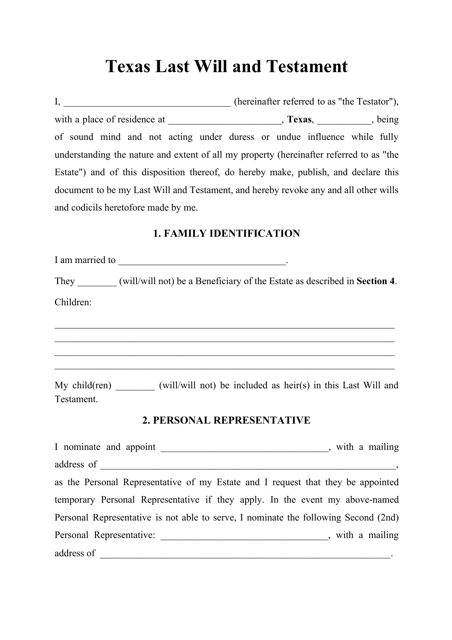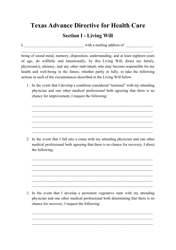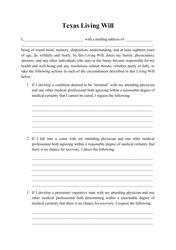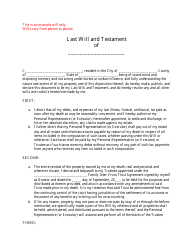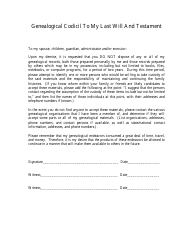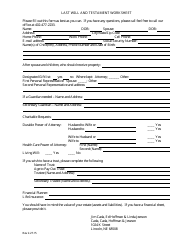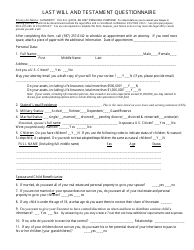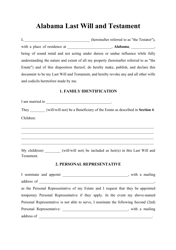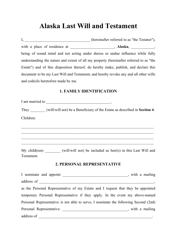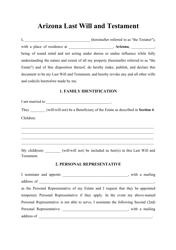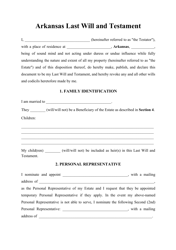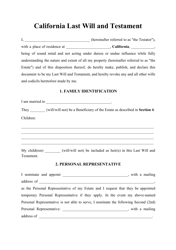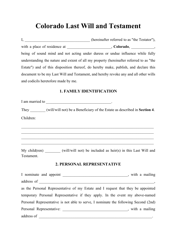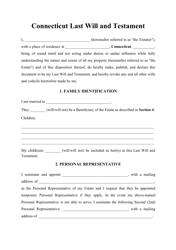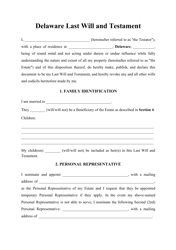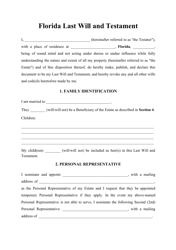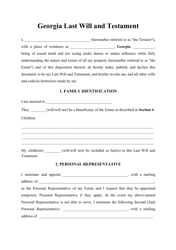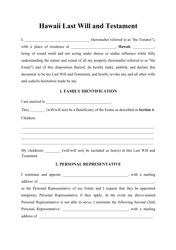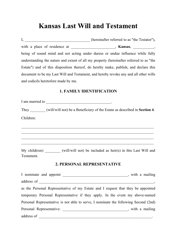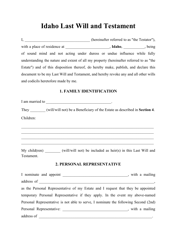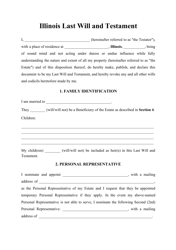Last Will and Testament Template - Texas
A Texas Last Will and Testament is a form that allows an individual - also known as a Testator - to identify who should receive their property, elect guardians for their minor children, and put an agent in charge of carrying out their wishes. There are two other parties named in a will: an Executor (the agent appointed by a Testator to carry out the terms of the will), and a Beneficiary (a person deriving advantage from the will).
Writing the document also minimizes tensions among surviving family members - battling over possessions can weaken what may have been a strong family.
The Texas Last Will is defined by Probate Code, Section 3(ff) . The state law dictates the document be attested by the Testator and by two (2) or more credible witnesses who are at least 14 years of age and who subscribe their names to the will in their own handwriting in the Testator's presence. Click on this link to create your own document with our online form builder or download a ready-made template through the link below.
What Is a Last Will and Testament in Texas?
A Last Will and Testament is a legal document that is written by a Testator to ensure that their estate will be distributed according to their wishes after their death. A Testator has to comply with certain requirements in order to be able to create a will.
- Age. A person must be over the age of 18 or an emancipated minor to legally be able to make a will.
- Testamentary capacity. A Testator must be of sound mind when composing their will. Having testamentary capacity means that the Testator has an understanding of what they are signing and are aware of the general nature and amount of property they own.
- Witnesses. All Last Wills must be signed and certified by a notary. Most states also require a legal will to be witnessed by least two people present during the signing of the document.
How to Write a Will and Testament in Texas?
Each state has its specific requirements that a Last Will and Testament template must meet to be legally acknowledged. A Testator is free to choose what to include in their will. The basic instructions for creating a will in Texas are as follows:
- The Testator must make a list of the people that they would like to elect as beneficiaries.
- The Testator should then create an inventory of all assets (real estate, vehicles, bank accounts) and calculate their worth.
- The money and property must then be split between the selected beneficiaries.
- A portion of the assets that will go towards paying inheritance tax, mortgages and funeral costs should be calculated and included in the will.
In most cases, it is best practice to select an Executor - a person that carries out a Testator's wishes in accordance with the will. Any adult 18 years or older and that has never been convicted of a felony can be an Executor for a will.
